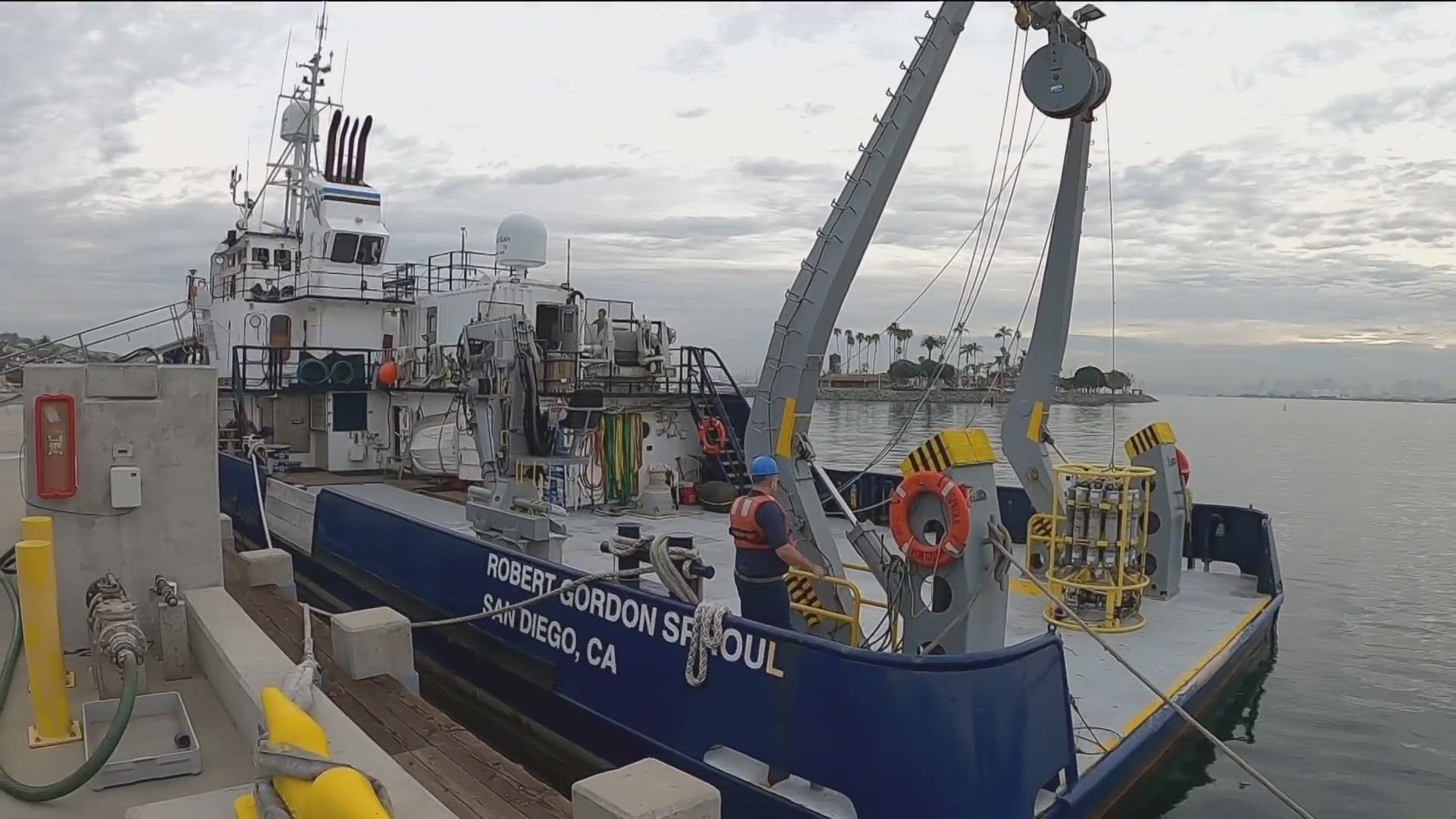SAN DIEGO — Before making a couple of other stops here in San Diego, Governor Gavin Newsom took time Sunday morning to check out the cutting-edge research being done by the Scripps Institution of Oceanography at UC San Diego as Scripps prepares for an exciting new chapter in the way it carries out its research and education missions.
Governor Newsom started his visit to America's Finest City touring the Robert Gordon Sproul, an impressive, though aging, coastal research vessel operated by the Scripps Institution of Oceanography at UC San Diego.
California Senate President Pro Tem -- and San Diegan -- Toni Atkins joined Newsom. Atkins helped secure $35 million from the state for a new research vessel that will eventually replace the Sproul.
Bruce Appelgate, associate director at Scripps in charge of ship operations, said that every year, the Sproul, now 42 years old, takes hundreds of undergraduate and graduate students to sea for first-hand ocean explorations.
"But it is old and dirty," Appelgate told CBS 8, "and that's the problem."
This cutting-edge new vessel, now in the design phase, will boast updated instruments and the latest technology and be powered with a clean hydrogen-hybrid propulsion system.
"We'll be able to do 75 percent of our missions entirely zero emission, which is terrific," he added.
Initially, diesel generators will provide electrical power for longer missions, but the vessel will be designed to eventually accommodate clean, renewable methanol as its secondary fuel source.
"Our mission here is to eliminate fossil fuels for the new ship eventually," Appelgate said.
This comes as Scripps continues its educational and research missions to help better understand the California coast as well as the impact of climate change on our coastal ecosystem.
"California cares a great deal about climate change, and I can't think of anywhere that's doing more work than Scripps and UCSD... world-renowned," Senate President Pro Tem Atkins said.
"This doesn't happen anywhere else: period, full-stop," added Governor Newsom, calling this work "profoundly consequential."
"We like to say, the future happens here first in terms of research, discovering, understanding, and the innovation that comes from that," Newsom told CBS 8, "and so this is exactly the kind of thing that the state of California should be investing in."
While it does not yet have a name, this new research vessel is expected to be completed and in the water by 2026.
WATCH RELATED: What's next for Newsom?

